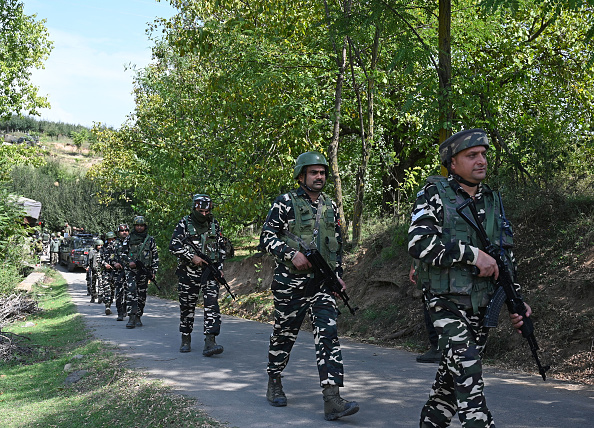ARMED FORCES (SPECIAL POWERS) ACT (AFSPA)

- 27 Sep 2024
In News:
The Armed Forces (Special Powers) Act (AFSPA) is a controversial law that grants extraordinary powers to the armed forces in designated "disturbed areas." Recently, the Ministry of Home Affairs extended AFSPA for six months in parts of Nagaland and Arunachal Pradesh, highlighting ongoing security concerns in these regions.
Current Status of AFSPA
Extended Areas
- Nagaland: AFSPA has been extended to eight districts—Dimapur, Niuland, Chumoukedima, Mon, Kiphire, Noklak, Phek, and Peren—along with 21 police stations in additional districts.
- Arunachal Pradesh: The Act continues in Tirap, Changlang, and Longding districts, as well as in certain areas of Namsai district.
Duration of Extension
The current extension is effective from October 1, 2024, lasting for six months unless revoked earlier. These areas were initially declared "disturbed" on April 1, 2024.
About AFSPA
Objective
AFSPA aims to maintain law and order in regions affected by insurgency or unrest, providing armed forces with necessary powers to perform their duties.
Key Provisions
- Section 3: Empowers the Governor or the Central Government to declare areas as "disturbed."
- Section 4: Grants special powers for arrests and searches without warrants.
- Section 6: Mandates that arrested individuals and seized property be handed over to the police.
- Section 7: Prosecution of armed forces personnel requires prior approval from the Central Government.
Rationale for Implementation
- To enable effective counter-insurgency operations.
- To ensure the protection of armed forces members.
- To uphold national security and sovereignty.
Criticisms and Issues
AFSPA has faced significant backlash for:
- Violating Fundamental Rights: Critics argue it undermines Articles 14, 19, and 21 of the Constitution.
- International Law Conflicts: It is perceived as contrary to the Universal Declaration of Human Rights and the International Covenant on Civil and Political Rights.
- Erosion of State Autonomy: The Act is viewed as an infringement on state powers, even in peaceful contexts.
Ineffectiveness and Atrocities
Reports of human rights abuses and the ineffectiveness of AFSPA in genuinely countering insurgency raise questions about its continued application.
Government's Position
Union Home Minister Amit Shah has noted that AFSPA has been lifted from 70% of the northeastern states, but it remains in force in certain areas, including Jammu and Kashmir, where revocation is also being considered.
Jeevan Reddy Committee
On November 19, 2004, the Central Government established a five-member committee led by Justice B.P. Jeevan Reddy to assess the Armed Forces (Special Powers) Act (AFSPA) in northeastern states. The committee was tasked with reviewing the law's implications and effectiveness.
Key Findings
In its 2005 report, the Jeevan Reddy Committee made several critical observations and recommendations:
- Complete Repeal: The committee advocated for the complete repeal of AFSPA, labeling it a "symbol of hate and oppression" and describing it as an "instrument of high-handedness."
- Incorporation into Other Legislation: It suggested that relevant provisions of AFSPA be integrated into the Unlawful Activities (Prevention) Act, 1967, with necessary modifications to delineate the powers of armed and paramilitary forces.
- Establishment of Grievance Cells: The committee recommended the creation of grievance cells in each district where armed forces are deployed, aimed at addressing public complaints and concerns regarding military actions.
Additional Recommendations
- The 5th report of the Second Administrative Reforms Commission also echoed the call for repealing AFSPA, reinforcing the need for legislative reform in addressing security issues.
- In 2016, the Supreme Court ruled that the armed forces cannot evade investigation for alleged excesses committed during their duties, even in "disturbed areas." This ruling clarified that the legal protections offered by AFSPA are not absolute, emphasizing accountability.
Conclusion
AFSPA remains a contentious issue with significant implications for civil rights, regional stability, and national security. A careful review and possible reform of the Act are essential to balance security needs with the protection of fundamental rights.
